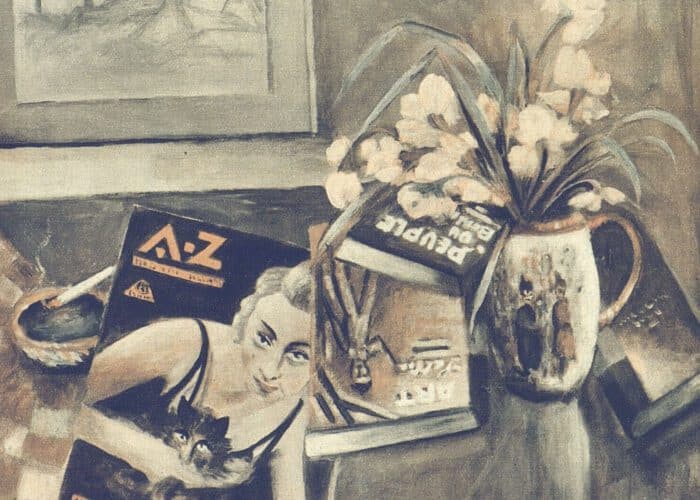
- Cet évènement est passé

Linked data and international standards for cultural heritage
Colloque international
Le projet de réseau LOD-ISNI, financé par BELSPO, vise à renforcer la coopération avec les partenaires (inter)nationaux et à promouvoir l’utilisation des Linked Open Data et des normes internationales pour rendre plus accessible et valoriser le matériel du patrimoine culturel.
Malgré les nombreuses politiques et plateformes visant à soutenir la transition vers les Open Data, la disponibilité des données concernant le patrimoine culturel est encore limitée et cloisonnée. Grâce à l’utilisation des Linked Open Data et des normes internationales comme l’ISNI (International Standard Name Identifier), les données du patrimoine culturel deviennent pourtant « FAIR » (Findable, Accessible, Interoperable, Reusable). Cela permet notamment de créer des synergies avec des organisations actives dans d’autres domaines, à travers les collections, les archives ou encore les systèmes.
Cette conférence a un double objectif :
- Permettre au secteur du patrimoine culturel, aux instituts de recherche et aux professionnels du livre de mettre en œuvre leur transformation digitale.
- Développer un réseau durable qui favorise la coopération internationale et intersectorielle.
Thèmes abordés
Le colloque traitera des sujets suivants :
- Les Linked (Open) Data
- Les normes internationales comme l’ISNI
- Les données FAIR et le patrimoine culturel
- Le catalogage coopératif (‘Cooperative Cataloguing’)
- Le flux de données numériques, par exemple entre éditeurs et bibliothèques
- La recherche inter-domaines
- Les « collections as data »
Programme
Les sessions du 13 septembre porteront sur les Linked Data. Le 14 septembre, l’accent sera mis sur les normes internationales.
Consultez le programme
Télécharger les présentations
Jour 1: Linked Data
| Sophie Vandepontseele
Welcome |
[vidéo] |
| Julie Birkholz (KBR)
KBR Digital Data Strategy |
[slides]
[vidéo] |
| Annette Dortmund (OCLC)
Next Generation Metadata as a transformative change |
[slides]
[vidéo] |
| Tiziana Possemato (@Cult & Casalini Libri)
The Share family, a shared and integrated ecosystem for library linked data |
[slides]
[vidéo] |
| Wilbert Helmus (Dutch Digital Heritage Network)
Linked Data and Digital Heritage in the Netherlands: Netwerk Digitaal Erfgoed |
[slides]
[vidéo] |
| Michelle Boon & Lois Hutubessy (Het Nieuwe Instituut)
A practical implementation of Linked Open Data |
[slides]
[vidéo] |
| Martín Álvarez-Espinar (Quick App Initiative)
Fancy a sustainable cultural heritage project for your town (in minutes)? |
[slides]
[vidéo] |
| Olivier Van D’huynslager (Design Museum Ghent) & Annelies Valgaeren (City of Antwerp)
Linking city heritage collections by implementing Flemish OSLO standards |
[slides] |
| Ricardo Santos (National Library of Spain)
Putting Linked Data to work: datos.bne.es, from the National Library of Spain |
[slides]
[vidéo] |
| Brecht Deseure (KBR & former researcher at King’s College)
Radical translations |
[slides]
[vidéo] |
| Julie Birkholz, Marianne Van Remoortel, Pieterjan De Potter (Ghent University) & Katherine Thornton, Kenneth Seals-Nutt (Stories Services Collaborative)
Enabling Linked Open Data for the Linking of Historical Women Editors of Periodicals |
[slides]
[vidéo] |
| Ursula Oberst, Annachiara Raia (African Studies Centre Leiden)
Unpacking and linking transoceanic data of Swahili material culture: some preliminary results |
[slides]
[vidéo] |
| Sven Lieber
Conclusion |
[vidéo] |
Jour 2: International Standards (ISNI, …)
| Sophie Vandepontseele
Welcome |
[vidéo] |
| Sofie Veramme, Evelien Hauwaerts (Mmmmonk – Bruges Public Library)
Connecting Medieval Monastic Manuscripts: metadata aggregation using IIIF manifests |
[slides]
[vidéo] |
| Karen Andree (Universiteit Antwerpen)
Vesper: cooperative cataloguing for subject indexing in art and heritage libraries |
[slides]
[vidéo] |
| Sven Lieber (KBR)
The benefits of international standards for research data management |
[slides]
[vidéo] |
| Laurence Richelle, Marie Goukens, Robert De Groof & François Renaville (University of Liège)
Enriching and aligning Alma bibliographic records with the IdRef authority file, the ULiège Library experience |
[slides]
[vidéo] |
| Barbara Fischer (Deutsche Nationalbibliothek)
GND meets Wikibase |
[slides]
[vidéo] |
| Alicia Fagerving (Wikimedia Sweden)
Wikidata at the museum: lowering thresholds for research with linked data in Sweden |
[slides]
[vidéo] |
| Luc Wanlin (Archives et Musée de la Littérature)
Unlocking performing arts global studies through ISNI |
[slides]
[vidéo] |
| Tim Devenport (ISNI International Agency)
ISNI – Ten years of identifying creative entities & prospects for the future |
[slides]
[vidéo] |
| Vincent Boulet (Bibliothèque nationale de France)
ISNI, a stimulus for digital legal deposit and key to BnF’s data services |
[slides]
[vidéo] |
| Isabelle Gaudet-Labine & Patrick Joly (BTLF)
The Hub. Evolution of the data management system at BTLF and the introduction of ISNI in the book supply chain of Quebec |
[slides]
[vidéo] |
| Caroline Saccucci (Library of Congress)
ISNI Integration in Prepublication Metadata Workflows at the Library of Congress |
[slides]
[vidéo] |
| Jenny Wright (Bibliographic Data Services)
Linking to the future: ISNIs in the UK publisher and library metadata systems |
[slides]
[vidéo] |
| Fride Fosseng (Bokbasen)
Implementation of ISNI in Bokbasen |
[slides]
[vidéo] |
| Panel discussion: ‘ISNI as bridge identifier between libraries and the publishing sector’
Moderated by Michelle Durocher (Harvard University) and Ann Van Camp (KBR) |
[vidéo] |
| Julie Birkholz
Conclusion |
[vidéo] |
Informations pratiques
- Ce colloque est un évènement hybride : vous pouvez y assister sur place ou en ligne
- La langue utilisée lors du colloque est l’anglais
- Adresse e-mail officielle : vfav@xoe.or
- L’Auditorium est accessible aux personnes à mobilité réduite (la rampe d’accès est située au niveau de la porte arrière)
- Le 15 septembre, une conférence internationale consacrée aux Social Media Data aura lieu à KBR. N’hésitez pas à vous y inscrire également.


